Histone H3 [Trimethyl Lys9] Antibody (6F12-H4) - BSA Free
Novus Biologicals, part of Bio-Techne | Catalog # NBP1-30141

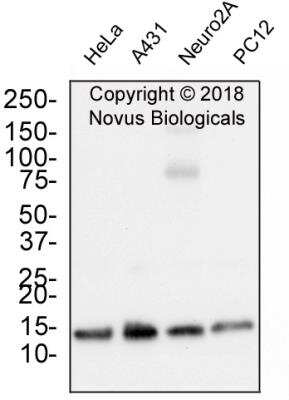
Conjugate
Catalog #
Forumulation
Catalog #
Key Product Details
Species Reactivity
Validated:
Human, Mouse, Rat, Porcine, C. elegans, Drosophila, Invertebrate, Mammal, Yeast
Cited:
Human, Mouse, Porcine, Invertebrate, Yeast
Applications
Validated:
Chromatin Immunoprecipitation (ChIP), ELISA, Immunocytochemistry/ Immunofluorescence, Immunohistochemistry, Immunohistochemistry-Paraffin, Immunoprecipitation, Western Blot
Cited:
Chemotaxis, IF/IHC, Immunocytochemistry/ Immunofluorescence, Immunohistochemistry-Paraffin, Immunoprecipitation, Proximity Ligation Assay, Western Blot
Label
Unconjugated
Antibody Source
Monoclonal Mouse IgG1 kappa Clone # 6F12-H4
Format
BSA Free
Concentration
1 mg/ml
Product Specifications
Immunogen
This Histone H3 [Trimethyl Lys9] antibody (6F12-H4) was raised against a synthetic peptide made to an N-terminal region of Histone H3 (between amino acids 1-50). [UniProt# P84243]
Reactivity Notes
Predicted to react with most mammalian species. Invertebrate / Blattella germanica (German cockroach) reactivity reported in scientific literature (PMID: 23872316). Porcine reactivity reported in scientific literature (PMID: 25736622)
Modification
Trimethyl Lys9
Localization
Nucleus
Clonality
Monoclonal
Host
Mouse
Isotype
IgG1 kappa
Theoretical MW
15 kDa.
Disclaimer note: The observed molecular weight of the protein may vary from the listed predicted molecular weight due to post translational modifications, post translation cleavages, relative charges, and other experimental factors.
Disclaimer note: The observed molecular weight of the protein may vary from the listed predicted molecular weight due to post translational modifications, post translation cleavages, relative charges, and other experimental factors.
Scientific Data Images for Histone H3 [Trimethyl Lys9] Antibody (6F12-H4) - BSA Free
Western Blot: Histone H3 [Trimethyl Lys9] Antibody (6F12-H4) [NBP1-30141] - Whole cell protein from human HeLa, A431, mouse Neuro2A and rat PC12 cells was separated on a 4-20% gel by SDS-PAGE, transferred to 0.2 um PVDF membrane and blocked in 5% non-fat milk in TBST. The membrane was probed with 1.0 ug/ml anti-Histone h3 in block buffer and detected with an anti-mouse HRP secondary antibody using chemiluminescence. Observed molecular weight is ~15 kDa.
Immunohistochemistry-Paraffin: Histone H3 [Trimethyl Lys9] Antibody (6F12-H4) [NBP1-30141] - Histone 3 was detected in immersion fixed paraffin-embedded sections of human colon cancer using anti-human mouse monoclonal antibody (Catalog # NBP1-30141) at 1:1000 dilution overnight at 4C. Tissue was stained using the VisuCyte anti-mouse HRP polymer detection reagent (Catalog # VC001) with DAB chromogen (brown) and counterstained with hematoxylin (blue). Images may not be copied, printed or otherwise disseminated without express written permission of Novus Biologicals a bio-techne brand.
Immunocytochemistry/Immunofluorescence: Histone H3 [Trimethyl Lys9] Antibody (6F12-H4) [NBP1-30141] - HeLa cells were fixed for 10 minutes using 10% formalin and then permeabilized for 5 minutes using 1X PBS + 0.5% Triton X-100. The cells were incubated with anti-Histone H3 [Trymethyl Lys9] (6F12-H4) at 2 ug/ml overnight at 4C and detected with an anti-mouse DyLight 488 (green) at a 1:500 dilution. Nuclei were counterstained with DAPI (blue). Cells were imaged using a 40X objective.
Applications for Histone H3 [Trimethyl Lys9] Antibody (6F12-H4) - BSA Free
Application
Recommended Usage
Chromatin Immunoprecipitation (ChIP)
1:10-1:500
ELISA
1:100-1:2000
Immunocytochemistry/ Immunofluorescence
1:200
Immunohistochemistry
1:1000. Use reported in scientific literature (PMID 23872316)
Immunohistochemistry-Paraffin
1:1000
Immunoprecipitation
1:10-1:500. Use reported in scientific literature (PMID 28270554)
Western Blot
1:2000
Application Notes
In Western blot, a band is seen at ~15 kDa.
Reviewed Applications
Read 2 reviews rated 5 using NBP1-30141 in the following applications:
Formulation, Preparation, and Storage
Purification
Protein G purified
Formulation
Tris-Glycine and 0.15M NaCl
Format
BSA Free
Preservative
0.05% Sodium Azide
Concentration
1 mg/ml
Shipping
The product is shipped with polar packs. Upon receipt, store it immediately at the temperature recommended below.
Stability & Storage
Store at 4C short term. Aliquot and store at -20C long term. Avoid freeze-thaw cycles.
Background: Histone H3
Histones are nuclear proteins responsible for the nucleosome structure of the chromosomal fiber in eukaryotes. Changes in chromatin structure play a large role in the regulation of transcription. The chromatin fibers are compacted through the interaction of a linker histone, H1, with the DNA between the nucleosomes to form higher order chromatin structures.
Common histone modifications include methylation of lysine and arginine, acetylation of lysine, phosphorylation of threonine and serine, and sumoylation, biotinylation, and ubiquitylation of lysine. Posttranslational modifications such as acetylation of core histones regulates gene expression, thus altering protein function and regulation (1). Histone H3 is primarily acetylated at lysines 9, 14, 18, and 23 and have a theoretical molecular weight of 15 kDa. Acetylation at lysine 9 and 14 appears to control histone deposition, chromatin assembly and active transcription. Methylation of arginine residues within histone H3 has also been linked to transcription regulation. Histone H3 has been linked to various types of cancer as a biomarker through the aberrant expression of histone deacetylase (HDAC) enzymes and changes to chromatins (2-4).
References
1. Zhang, Y. X., Akumuo, R. C., Espana, R. A., Yan, C. X., Gao, W. J., & Li, Y. C. (2018). The histone demethylase KDM6B in the medial prefrontal cortex epigenetically regulates cocaine reward memory. Neuropharmacology, 141, 113-125. doi:10.1016/j.neuropharm.2018.08.030
2. Nandakumar, V., Hansen, N., Glenn, H. L., Han, J. H., Helland, S., Hernandez, K, ...Meldrum, D. R. (2016). Vorinostat differentially alters 3D nuclear structure of cancer and non-cancerous esophageal cells. Sci Rep, 6, 30593. doi:10.1038/srep30593
3. Zhou, M., Li, Y., Lin, S., Chen, Y., Qian, Y., Zhao, Z., & Fan, H. (2019). H3K9me3, H3K36me3, and H4K20me3 Expression Correlates with Patient Outcome in Esophageal Squamous Cell Carcinoma as Epigenetic Markers. Dig Dis Sci, 64(8), 2147-2157. doi:10.1007/s10620-019-05529-2
4. Li, Y., Guo, D., Sun, R., Chen, P., Qian, Q., & Fan, H. (2019). Methylation Patterns of Lys9 and Lys27 on Histone H3 Correlate with Patient Outcome in Gastric Cancer. Dig Dis Sci, 64(2), 439-446. doi:10.1007/s10620-018-5341-8
Alternate Names
H3F3A, H3K9Me3
Gene Symbol
H3-3A
UniProt
Additional Histone H3 Products
Product Documents for Histone H3 [Trimethyl Lys9] Antibody (6F12-H4) - BSA Free
Product Specific Notices for Histone H3 [Trimethyl Lys9] Antibody (6F12-H4) - BSA Free
This product is for research use only and is not approved for use in humans or in clinical diagnosis. Primary Antibodies are guaranteed for 1 year from date of receipt.
Loading...
Loading...
Loading...
Loading...
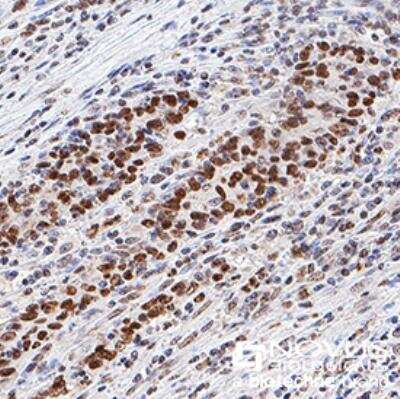
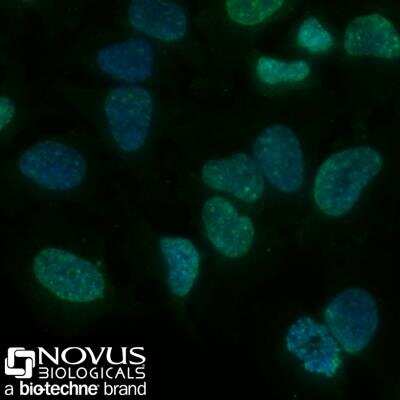
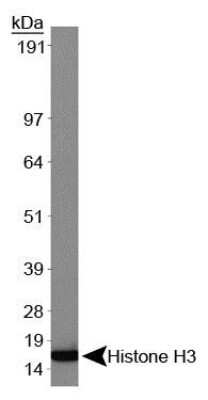
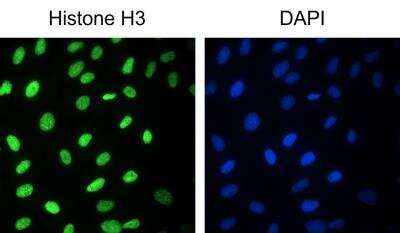
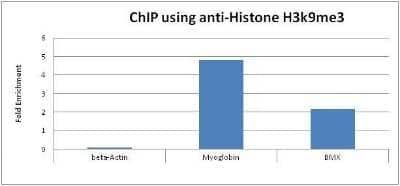

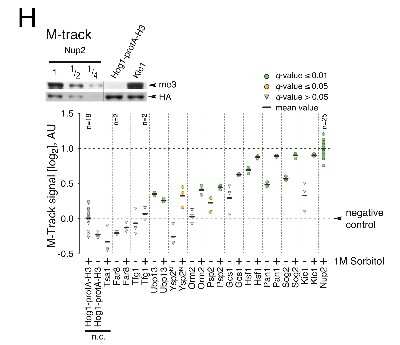
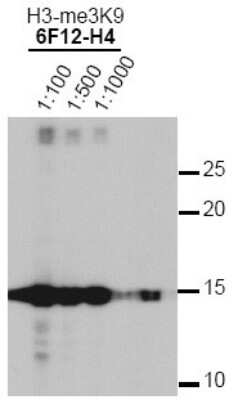
![Histone H3 [Trimethyl Lys9] (6F12-H4) in MCF7 Human Cell Line. Histone H3 [Trimethyl Lys9] Antibody (6F12-H4)](https://resources.bio-techne.com/images/products/antibody/nbp1-30141_mouse-monoclonal-histone-h3-trimethyl-lys9-antibody-6f12-h4-immunocytochemistry-immunofluorescence-2382024134224..jpg)